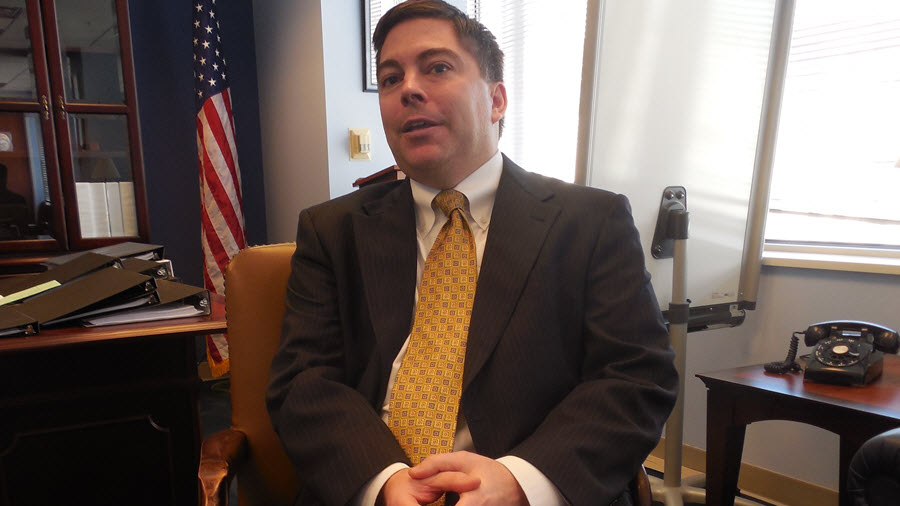O'Rielly: Media Dereg Moves Not Motivated by Sinclair-Tribune Merger

The smarter way to stay on top of broadcasting and cable industry. Sign up below
You are now subscribed
Your newsletter sign-up was successful
Republican FCC commissioner Michael O'Rielly suggested Friday (Oct. 20) that the Sinclair-Tribune merger doesn't deserve the blame or the credit for the potential -- and long-overdue, he added -- media ownership deregulation that could help Sinclair keep more of Tribune's stations.
FCC chair Ajit Pai has been accused of trying to put a thumb on the scale for Sinclair Broadcast Group, a charge he denies.
In a blog post updating some guidance he supplied last June, O'Rielly addressed the "elephant in the room," though treating the deal as the Voldemort-like merger that must not be named, primarily because commissioners are not supposed to weigh in on items in front of them, which, technically, he didn't.
"There is currently a merger pending before the commission that some argue will benefit from, and is the reason for, any changes to our media ownership rules," O'Rielly wrote. "While I make no comments regarding this, or any, merger application, let me be clear: this transaction is in no way the catalyst for FCC action on these issues.
"First, the statute requires the FCC review its media rules," he continued. "Having failed that, we now have pending petitions before us to reconsider the past shoddy effort. Second, I have been calling for media ownership reform since joining the commission and as a staffer in the U.S. Senate before that. It’s not a new position or reaction to a pending application. Instead, for the first time, we finally have a chairman receptive to these ideas."
The bulk of the blog was devoted to his assertion that it is time for the FCC to complete its long-overdue congressionally-mandated review of media ownership regulations, which means eliminating duopoly restrictions and cross-ownership bans for starters, but only for starters.
O'Rielly doesn't control the FCC's agenda, but he is one of the necessary majority votes for Republicans in any party line vote. He is also a former Hill staffer who says the FCC needs to get moving on the quadrennial ownership review that has been a decade in the not-yet-making.
Critics of the Sinclair-Tribune merger have branded the FCC's decision to restore the UHF discount a favor for Sinclair. O'Rielly said he supported restoring the discount because its absence hurt broadcasters and because the FCC did not have the authority to eliminate the discount in the first place.
O'Rielly had some suggestions for that overdue media ownership reg review:
Define the broadcast market to include not only newspapers and TV and radio stations, as has traditionally been the definition, but MVPDS and OTT providers and websites and social media and streaming music services and satellite radio.
Once that marketplace is acknowledged, the debate can begin about what regs are needed on broadcasters awash in competition.
Among those it doesn't need, he said, are cross-ownership restrictions on newspaper-radio, newspaper-TV, and radio-TV combos. As to the rules that limit multiple ownerships in a market, he said the duopoly rules are so last-century.
"To my friends who think we need regulations to ensure a diversity of viewpoints, here’s a newsflash: You are regulating the wrong market," O'Rielly wrote. "Today, with thousands of new options, how can the FCC justify maintaining this rule in its current form? In many markets, duopolies or even triopolies could strengthen the overall state of broadcasting and allow stations to concentrate more resources on bringing more and higher quality local content to their viewers."
The smarter way to stay on top of broadcasting and cable industry. Sign up below
Contributing editor John Eggerton has been an editor and/or writer on media regulation, legislation and policy for over four decades, including covering the FCC, FTC, Congress, the major media trade associations, and the federal courts. In addition to Multichannel News and Broadcasting + Cable, his work has appeared in Radio World, TV Technology, TV Fax, This Week in Consumer Electronics, Variety and the Encyclopedia Britannica.

